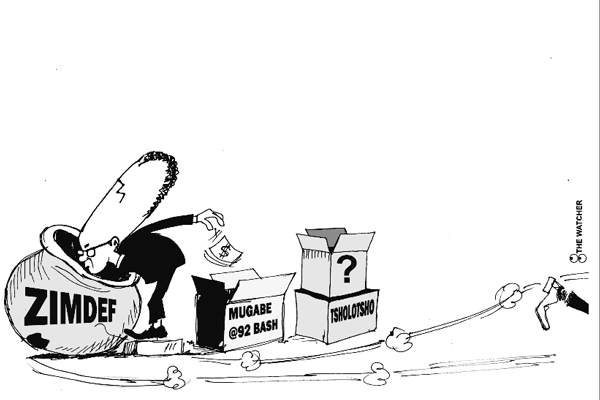
Zimbabweans are astounded that the police have not arrested Higher and Tertiary Education, Science and Technology Development minister Jonathan Moyo because no report has been made to that effect.
By Sparkleford Masiyambiri,Our Reader

The Zimbabwe Anti-Corruption Commission (Zacc) exposed that Moyo misappropriated $450 000. What amazes many is the fact that the Zimbabwe Republic Police (ZRP) is deliberately ignoring efforts put by Zacc in the course of their constitutional mandate. This leaves more questions than answers.
Where is the missing link between the ZRP and Zacc?
These two public statutory bodies should synchronise their operations in order to weed out corruption, which is gnawing at our national resources at an alarming rate.
The ZRP is obliged to safeguard itself against facing allegations of selective application of the law amongst citizens.
One may ask if Zacc hasn’t called for the involvement of the ZRP in the Moyo saga. It is unlikely, considering the fact that Zacc has no arresting powers. Honestly, what role does the ZRP play in curbing corruption if they behave in such a hypocritical manner of pretending never to understand the elementary facts of the simple matter at stake?
Possibly, to avert this anomaly, Zacc should be given prosecutorial powers to enhance the statutory body’s mandate to execute its duties effectively and efficiently.
- Chamisa under fire over US$120K donation
- Mavhunga puts DeMbare into Chibuku quarterfinals
- Pension funds bet on Cabora Bassa oilfields
- Councils defy govt fire tender directive
Keep Reading
Studies have revealed that agencies possessing both prosecutorial and enhanced investigative powers, like in the Republic of Georgia in Europe, emerged to be extremely powerful agencies that can fight corruption efficiently.
In Georgia, the investigative division of the prosecution has the power to investigate and prosecute corruption.
The only limitation to this power is the ability of the Justice minister to intervene where high-level officials have been implicated. However, the minister’s power has not hampered the effectiveness of the agency owing to the strong political will to fight corruption in the country.
At the time of starting the anti-corruption reform agenda in 2003, Georgia was ranked 124 out of 133 countries on the Corruption Perception Index, but is now ranked 51 out of 174 countries.
One of the main reasons policymakers cite for establishing a stand-alone, independent anti-corruption agency is the need to strengthen the enforcement of their nation’s laws against bribery, conflict of interest and other corruption crimes.
So there is need to establish an independent committee to relook into the best international practices that can be adopted and implemented to fortify Zacc so as to foster their duty and execution in curtailing corruption. Otherwise the Moyo saga is a tip of the iceberg.
Much more should be exposed by Zacc in order to cleanse our nation of the corruption demon that is bedevilling our nation. There should be no sacred cows.











